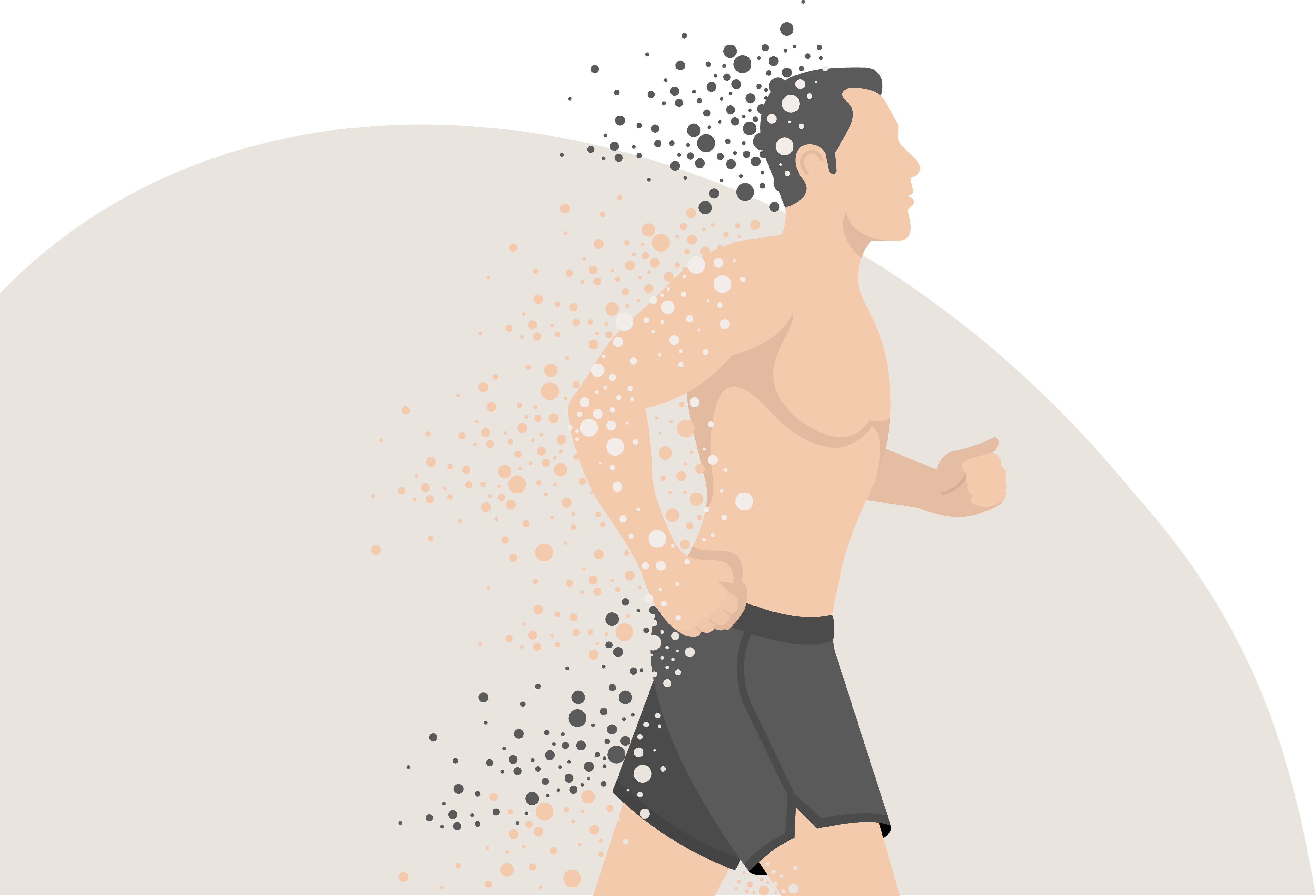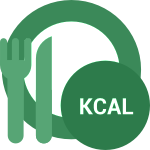Eating Disorder Treatment
- Tailored Care: Personalised Treatment Combining Psychological, Nutritional & Medical Expertise
- Experienced Team: 19 Years Providing Professional Evidence-Based Care
- Safe Environment: Compassionate, Respectful Support, You Can Trust
EATING DISORDER SUPPORT
A JOURNEY TOWARD HEALING & RECOVERY
Are you struggling in silence, feeling trapped in a cycle of worry about your weight and eating habits? Have you been hiding your true self from those you love, fearing judgement or rejection?
If these questions resonate with you, know that you are not alone. Many people, like you, face similar challenges and are searching for the path to healing and recovery.
We provide comprehensive eating disorder treatment programmes to support you, offering a compassionate and understanding environment where you can take the first step toward reclaiming your life and well-being.
In our personalised treatment plans, you can expect to experience:

Compassionate Support
Our dedicated team of professionals understands the complexities of eating disorders and will guide you with empathy and care

Nutritional Guidance
Work with our experienced eating disorder nutrition team to create a balanced eating plan that nourishes both your body and mind

Psychiatric Care
Access to skilled psychiatrists who can provide medication management and support for co-existing mental health conditions

Individualised Therapy
Tailored therapy sessions that address your specific needs, helping you develop healthier thoughts and behaviours around food and body image

Private GP & Wellbeing Services
Comprehensive medical evaluations and monitoring from our private general practitioners to ensure your overall health and safety during treatment
Embarking on this journey can lead to profound, positive changes in your life, fostering self-acceptance and strength. Reach out today to begin the process of healing and embrace a future filled with hope and support.
TAKE CONTROL OF YOUR HEALTH TODAY – WE ARE HERE TO HELP
Struggling with weight and eating challenges? You don’t have to face it alone.
Our compassionate team is ready to listen, support, and guide you toward a healthier, happier life.
Book your free call now and take the first step.
Emily – Do You Resonate With Her Story?
LOST IN A BATTLE WITH FOOD & THE SOCIAL SHAME OF HER BODY
Emily is a 26-year-old woman, has been struggling with eating disorders since she was a child. Her journey started with anorexia during her early teenage years, when she became obsessed with severely restricting her food intake to meet her perceived competitive expectations of ballet training.
Over time, she was unable to maintain her rigid control around food and her eating disorder evolved into bulimia, as she began to compensate for uncontrollable overeating by engaging in cycles of bingeing and purging. This secretive behaviour was driven by a constant, looming anxiety about her weight and appearance.
Despite outward appearances of a successful career and a loving relationship with her boyfriend, Emily has been privately battling these deeply ingrained issues, increasingly worried about the impact on her long-term health. The cycles of her eating disorder have started to affect her energy levels and overall well-being, making her realise the urgent necessity to seek professional treatment.
Emily’s struggle is compounded by her fear of rejection and profound social anxiety. She often finds herself in situations where her mind is consumed with negative body image comparisons, leaving her feeling isolated despite being surrounded by friends and colleagues.
With a constant dread that her boyfriend might notice her eating behaviours and reject her, she avoids dining out or any activities that involve food. Recently, upon the recommendation of a concerned coworker, who noticed her abrupt disappearances during meal times, Emily has begun to research eating disorder treatment services.
Her hope is to find a supportive environment where she can openly confront her fears and develop a healthier relationship with food and her body. Through treatment, Emily aspires to cultivate a more balanced and secure sense of self, freeing herself from the mental stress of her eating disorder, and ultimately leading to improved quality of life and more authentic connections with those around her.
Effects Of An Eating Disorder
On the surface, eating disorders like anorexia, bulimia and binge eating disorder may seem like mental health conditions connected to food, weight and eating. The reality is, there are many biological factors, environmental stressors, and psychological / emotional patterns that lie underneath the visible eating disorder symptoms.
There is often a strong internal pull between restricting food and weight control, with a desire to binge and overeat. Our experience tells us, this conflict is often a way of escaping difficult situations in life, challenging relationships and overwhelming emotions.
Eating disorders can affect you in many ways, and once they take hold in your life, your mental and physical health can deteriorate quickly. Socially, they can isolate you in relationships, and leave you feeling alone. Your mind can become riddled by a critical inner voice, paranoid thinking and a strong drive for perfectionism.
Your body will become sick, with elevated stress levels, lowered immunity, malnutrition and poor sleep. This will drive your desire to eat, which consequently fuels the eating disorder to take hold. Below are some health risks and psychological consequences of eating disorders.
Health risks of Eating Disorders
- High/low blood pressure
- Osteoporosis
- Severe dehydration & electrolyte imbalances
- Heart failure
- Hormone imbalances
- Gastric complications
- High cholesterol
- Type II Diabetes
Psychological effects of Eating Disorders
- Perfectionism
- Distorted body image
- Obsessive thoughts about food
- Low self-esteem
- Mood swings
- Overwhelming guilt
- Anxiety
- Depression
Psychological & Emotional Factors
Eating disorders can develop for a wide range of psychological and emotional reasons, some of which are listed below. These factors can cause eating disorders to show up in different ways, and will be unique to you and your personal life situation.
Stressful Emotions
When we find it difficult to cope with stressful emotions, we may turn to food for the answers.
You may find yourself binge eating in an attempt to comfort yourself and escape reality, leaving behind stress and anxiety. You may find that restricting food helps numb feelings of depression and anxiety, giving you a sense of control in a world where you feel you have none.
Guilt and shame are also drivers in disrupting our relationship with food. We may find ourselves internalising these emotions into our sense of self-worth. This can translate into our relationship with food, causing us to restrict our calories, secretly overeat, overexercise or purge after meals.
These emotions can easily keep you trapped in a cycle of self-loathing, making it easy to relapse and reactivate your patterns of disordered eating.
Body Image
The way that we perceive and feel about our bodies can influence our eating behaviours.
Social pressures and the media can negatively influence our body image and trigger eating disorders. We may feel pressured to meet Western idealistic beauty standards, that are inescapable on social media.
We may internalise these norms and try to change our eating patterns to feel more comfortable in ourselves. However, body image is a perception – this means that we may keep finding new flaws that make us feel worthless.
When we fixate on flaws that other people cannot see, we may feel misunderstood and choose to isolate ourselves from loved ones. Social isolation can maintain and worsen eating disorders and lead to severe consequences for our physical and mental health.
Trauma and Neglect
Experiencing trauma or neglect can trigger the development of an eating disorder. Deeper psychological patterns can often get played out in our relationship with food and our body.
Emotional, physical or sexual abuse can leave us with extremely difficult emotions that feel overwhelming. We may find it easier to repress these emotions, and focus our energy on food and eating.
Neglect can leave us feeling empty, rejected and unwanted. We may resort to overeating or overcontrolling our food as a way to fill this hole, even if the effects are only temporary.

EATING DISORDER TREATMENT
An eating disorder can drive us to engage in excessive and compulsive exercise, even when our body is exhausted, broken and falling apart.
MEET ALICE & HEAR HER STORY
Alice shares how therapy and nutritional support have helped her find agency, self-confidence and joy being in her body.
EATING DISORDER TREATMENT
Our effective Multi-Disciplinary Team (MDT) approach to eating disorder treatment integrates therapy, nutritional support, psychiatry, and private GP services, providing a comprehensive and holistic pathway to recovery.

THERAPY
Blending interventions from CBT, interpersonal and other therapies, we support clients in reframing negative thought patterns and improving their relationships.

NUTRITION
Nutritional support offers guidance on healing relationships with food and establishing balanced eating habits.

PSYCHIATRY
Psychiatry assesses and manages co-occurring mental health conditions, including medication management when needed.

PRIVATE GP
We offer personalized medical oversight, monitor physical health, and coordinate care among specialists.
At WeightMatters, our integrated approach not only addresses the physical and psychological aspects of eating disorders, but also empowers individuals with the tools and support they need for lasting recovery.
Let us support you on your journey toward recovery, and help you reclaim your life. Take action today.
It’s Time To Heal.
Therapy
We have an experienced team of therapists who specialise in eating disorder treatment. Our expertise lies in matching you with the right therapist for your unique presentation. Below are some of the effective psychological interventions for eating disorder treatment that are essential components of a comprehensive recovery plan.
Cognitive-Behavioral Therapy (CBT) – Focuses on identifying and changing distorted thinking patterns and maladaptive behaviours related to food, body image, and self-esteem.
Dialectical Behavior Therapy (DBT) – Helps individuals develop skills to manage emotions and reduce harmful behaviours, often used when there is high emotional dysregulation.
Interpersonal Psychotherapy (IPT) – Addresses interpersonal issues and conflicts that contribute to the development or maintenance of eating disorders.
Mindfulness-Based Interventions – Encourages individuals to develop a mindful awareness of their thoughts and feelings, promoting a healthier relationship with food and body image.
Acceptance and Commitment Therapy (ACT) – Focuses on accepting negative emotions and committing to personal values and behaviour change.
Motivational Interviewing (MI) – Enhances motivation and commitment to change by exploring and resolving ambivalence about recovery.
Psychodynamic Therapy – Addresses underlying psychological conflicts and traumas that may contribute to the eating disorder.
Our therapists each work with a unique blend of the different therapies described above. They tailor interventions to your specific needs, and are trained to explore your eating patterns and help you understand the interplay between your eating, physiology, psychology and emotions.
Nutrition
We have a team of dietitians and nutritional therapists that have specialist training in eating disorder treatment. Nutritional interventions are critical for treating eating disorders, as they help restore physical health, normalise eating patterns, and improve nutritional intake. Here are some key nutritional interventions commonly used:
Nutritional Counselling – Understanding and assessing your eating disorder to develop individualised meal plans that address specific dietary needs and restore nutritional balance.
Meal Planning – Structured meal plans help individuals establish regular eating patterns and meet their nutritional requirements.
Nutritional Education – Educating individuals about proper nutrition and the impacts of eating disorders on physical health.
Refeeding Programmes – Carefully monitored programs designed to restore adequate nutrition to individuals who are significantly malnourished.
Weight Restoration – Guided weight restoration for individuals who are underweight is a component that involves incremental increases in caloric intake under professional supervision.
Monitoring & Managing Medical Complications – Managing dietary interventions in conjunction with medical care to address any complications arising from eating disorders, such as electrolyte imbalances or gastrointestinal issues.
Addressing Fear Foods – Gradually introducing foods that an individual may fear or avoid, helping to reduce anxiety and food avoidance behaviours.
Intuitive Eating Approaches – Teaching individuals to listen to their body’s hunger and satiety cues to develop a healthier relationship with food.
Supplementation – Providing necessary vitamin and mineral supplements to correct deficiencies.
It is important our nutrition team work with compassion and care, introducing changes carefully, at a pace that works for you. We recommend these nutrition interventions are part of a comprehensive treatment plan that includes psychological and medical support, tailored to meet the specific needs and conditions of the individual.
Psychiatry
Psychiatric assessment, medication management, and ongoing psychiatric support are key elements in treating eating disorders. Here are some of the areas our experienced psychiatry team can help with:
Psychiatric Assessment
- Diagnosis – Accurately identifies the type of eating disorder and any co-occurring mental health conditions, such as anxiety or depression.
- Underlying Issues – Uncovers psychological factors or traumas contributing to the disorder.
- Treatment Planning – Guides the development of a personalised treatment plan tailored to the individual’s needs.
Medication Management
- Symptom Relief – Medications, like SSRIs, can help alleviate symptoms of eating disorders and associated mood disorders.
- Co-occurring Disorders – Helps manage additional psychiatric conditions, supporting overall recovery.
- Monitoring – Regular check-ins with a psychiatrist ensure effective dosage and manage side effects.
Ongoing Psychiatric Support
- Psychiatric Coaching – Offers ongoing therapeutic support tto address emotional issues and build healthier behaviours.
- Motivation & Support – Keeps individuals motivated, helps prevent relapse, and addresses emerging concerns.
- Progress Monitoring – Regular follow-ups allow adjustments to the treatment plan and help manage risks proactively.
Together, these components address both the psychological and physiological aspects of eating disorders, supporting sustained recovery and mental well-being. We recommend our psychiatry services work alongside therapy and nutritional support, to provide comprehensive eating disorder treatment and healing recovery.
Private GP
Medical monitoring is essential, especially when an eating disorder is either acute or chronic. We can work closely in a hybrid care model with your NHS GP, and offer a space where you can discuss your wider health in detail.
Our Private GP can work together with our therapy, nutrition and psychiatry teams to provide comprehensive, safe and effective treatment for eating disorders.
EATING DISORDER TREATMENT – GETTING STARTED
We believe it is important for clients to begin their journey by focusing on the area most impacting them. Some might initially start with therapy to address psychological and emotional factors, while others might opt to see a nutritionist first to establish a healthier eating structure.
As you progress forward through your eating disorder treatment, additional services can be seamlessly integrated into your plan. Our Rebalance programme allows you to blend both our psychology and nutrition services for effective eating disorder treatment.
Let us support you with our effective Multi-Disciplinary Team (MDT) approach to eating disorder treatment. Now is the time to understand your eating disorder, and develop a programme that transforms your life.
It is time to feel hopeful, heal, and start your journey to recovery.
Call us now, or book a free assessment call with our friendly client services team, who will answer any questions you have.
IT’S TIME TO START YOUR HEALING JOURNEY
You can discover our clear pricing structure.
SERVICES WE RECOMMEND FOR Eating Disorder Treatment
Here are the WeightMatters services we recommend for eating disorder treatment.
IF IT FEELS MORE COMFORTABLE, EMAIL US
Do you have a question about our treatment and support?
Leave your details below, and we will come back to you with a personalised response.
